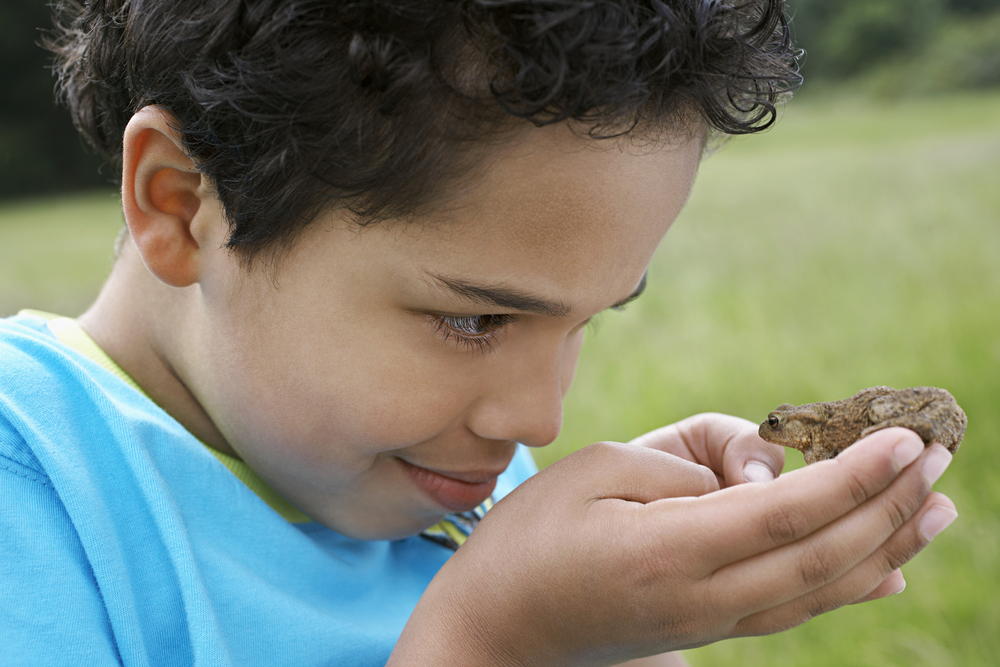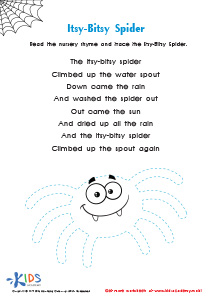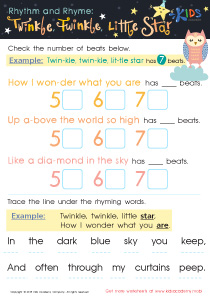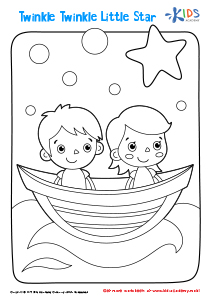Nursery Rhymes Worksheets for Ages 3-7
5 filtered results
-
From - To
Explore our engaging Nursery Rhymes Worksheets for children aged 3-7! Designed to enhance early literacy skills, these worksheets incorporate beloved nursery rhymes that make learning fun. Children will develop vocabulary, phonetic awareness, and comprehension through interactive activities such as coloring, tracing, and filling in missing words. Our carefully crafted resources foster creativity and critical thinking while nurturing a love for storytelling. Perfect for classroom settings or home learning, these worksheets are a delightful way to introduce young learners to the joys of rhythm and rhyme. Join us in making education enjoyable for your little ones with our vibrant and educational worksheets!
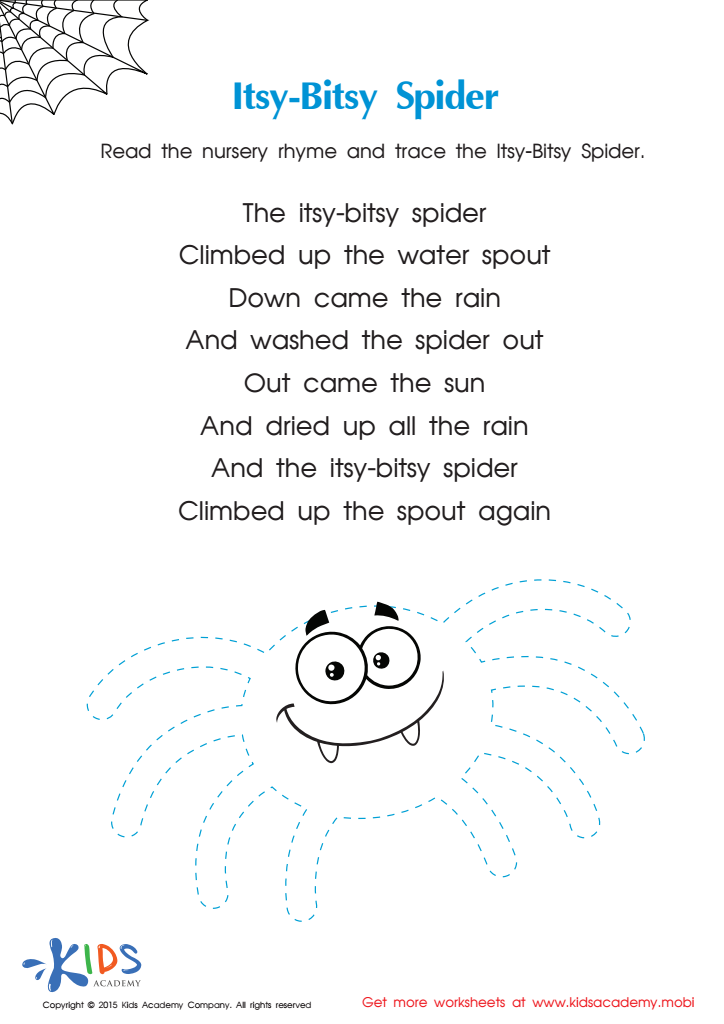

Itsy Bitsy Spider Nursery Rhyme PDF Worksheet


The Five Little Monkeys Nursery Rhyme Worksheet
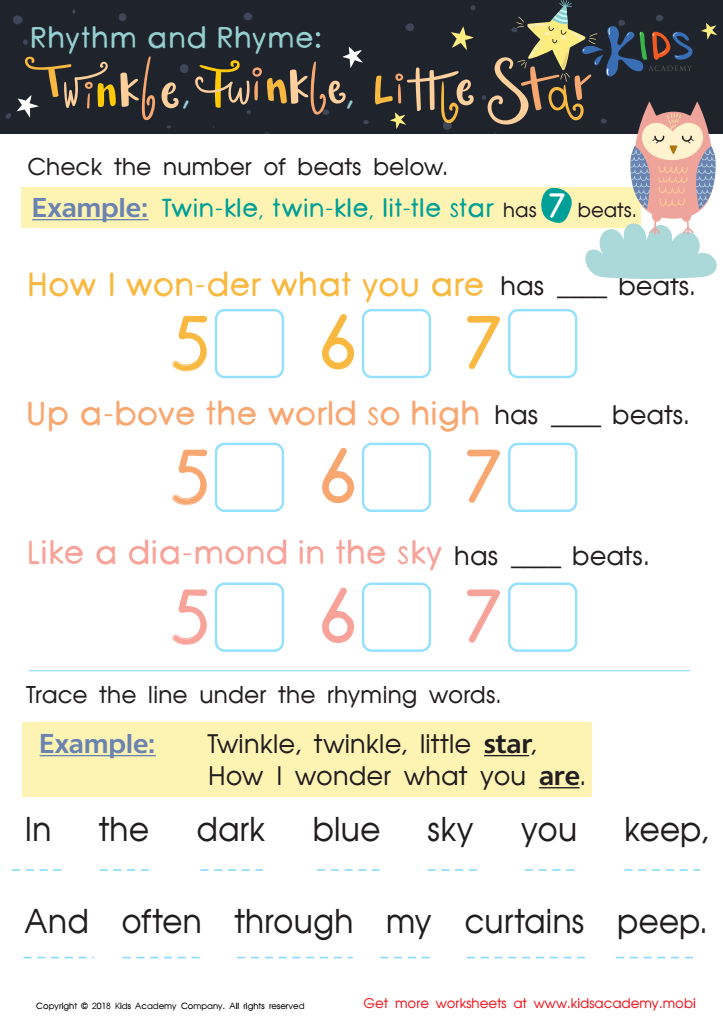

Rhythm and Rhyme: Twinkle, Twinkle, Little Star Worksheet
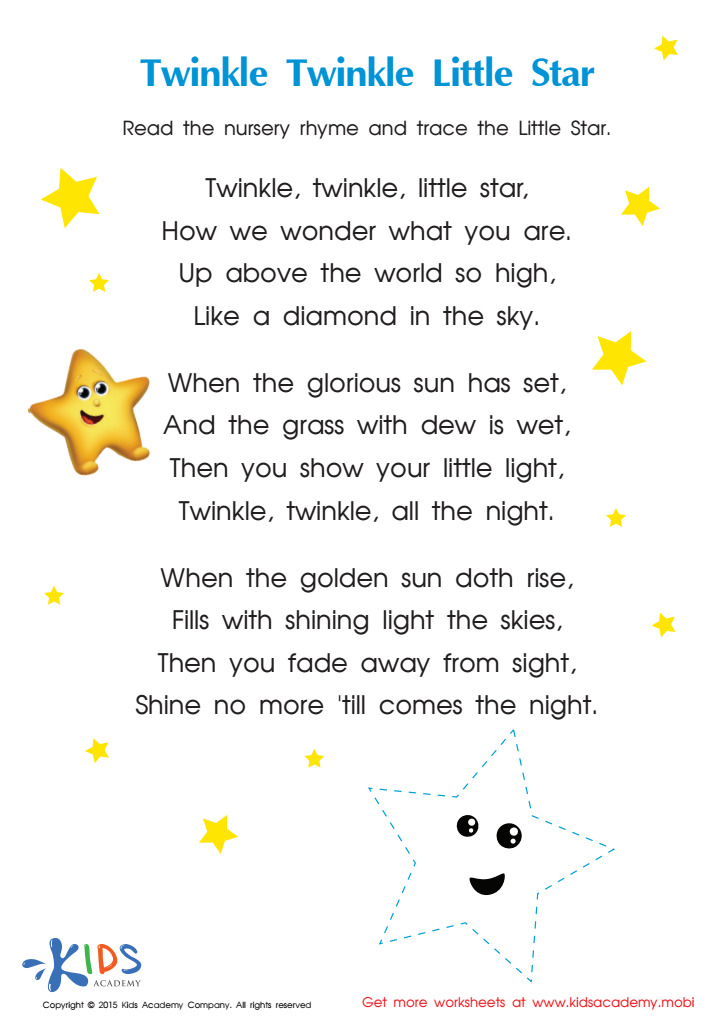

Nursery Rhymes: Twinkle Little Star Worksheet
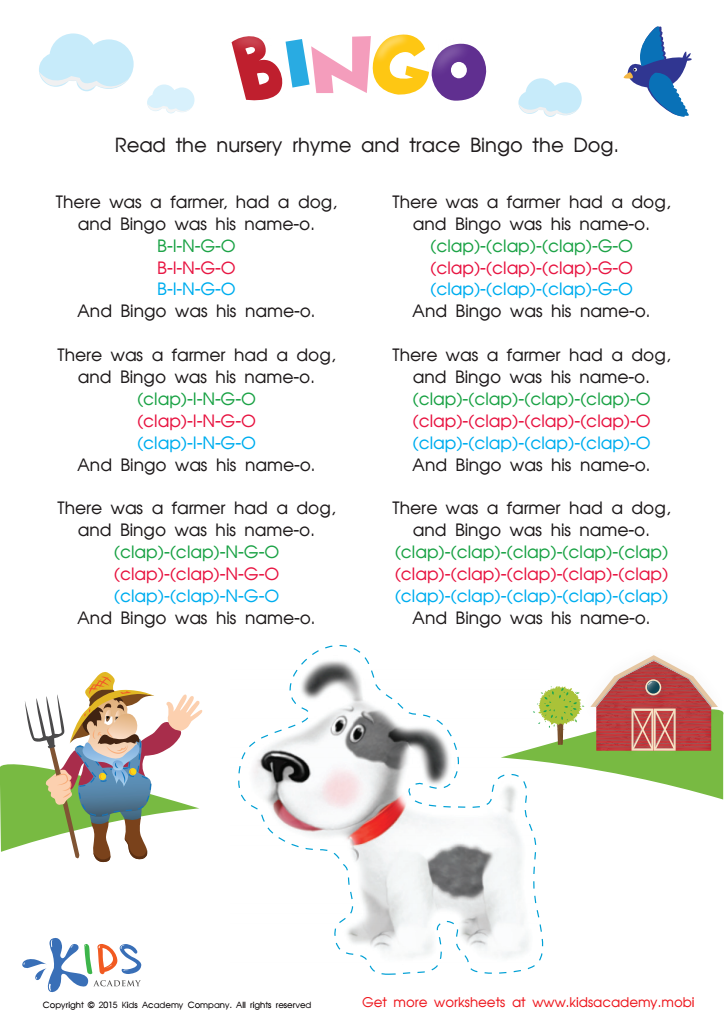

Nursery Rhymes: The Bingo Song Worksheet
Nursery rhymes are a vital aspect of early childhood education for children aged 3-7, offering numerous developmental benefits. Firstly, they enhance language acquisition by introducing children to rhythm, rhyme, and the sounds of speech, which form the foundation for effective communication skills. This playful manipulation of language fosters phonemic awareness, crucial for reading readiness.
Additionally, nursery rhymes stimulate memory and comprehension through repetitive patterns and predictable structures. As children engage in reciting them, they practice memorization and recall, strengthening cognitive skills. They also boost vocabulary and encourage imaginative play, as stories conveyed through these rhymes often spark creativity.
Parents and teachers should also value the social aspect of nursery rhymes; they are often shared in group settings, promoting interaction among peers. This interaction enhances social skills and emotional development, as children learn to take turns, cooperate, and express themselves.
Furthermore, many nursery rhymes contain moral lessons and cultural references, enriching children's understanding of the world. Engaging with these delightful songs and poems lays the groundwork for lifelong literacy, fostering a love for language and storytelling. In essence, nursery rhymes are not just entertainment; they are building blocks for a child’s critical developmental milestones.

 Assign to My Students
Assign to My Students






